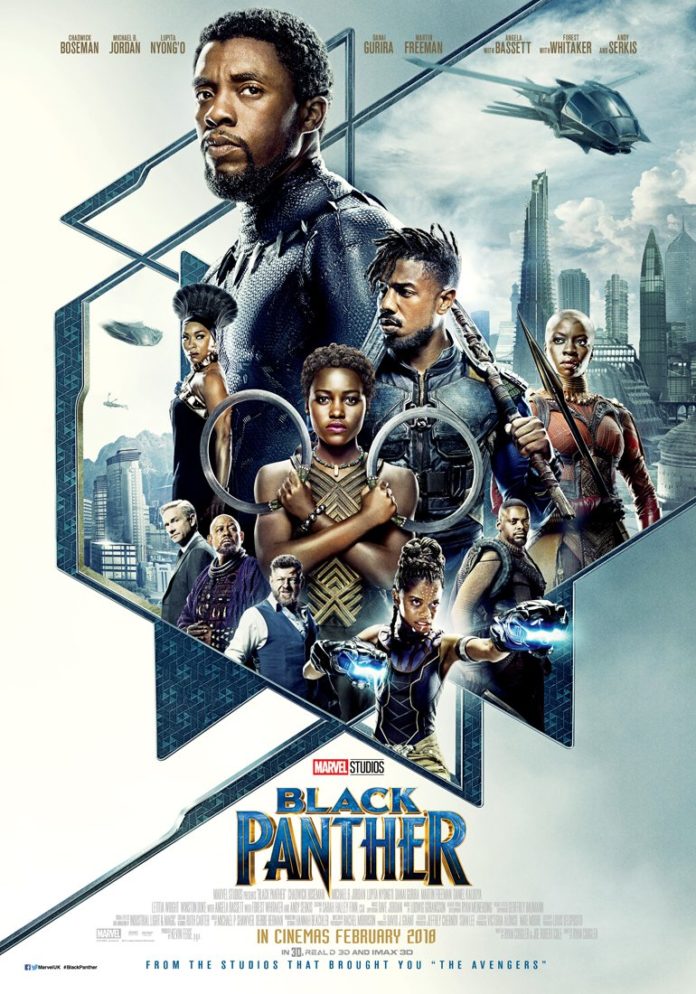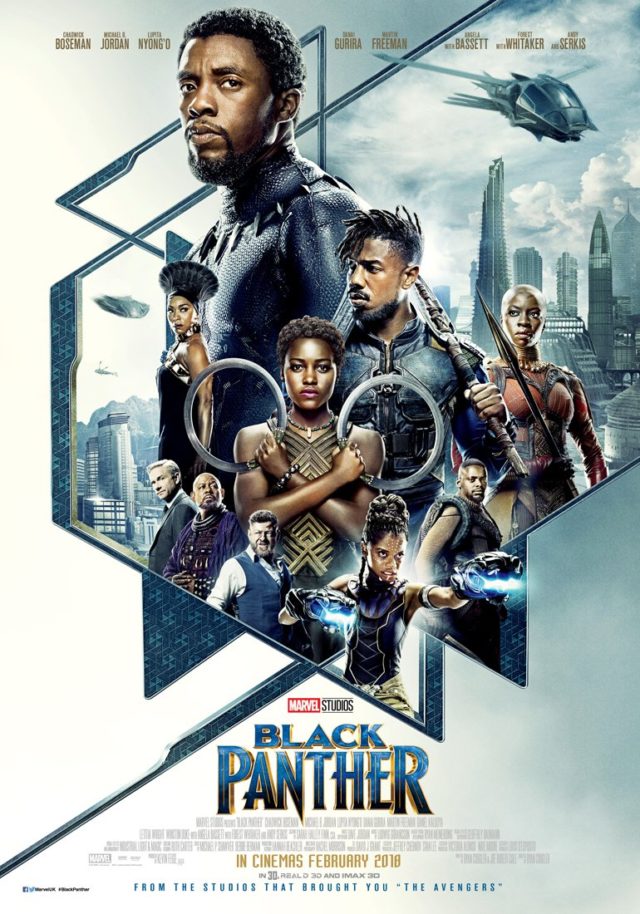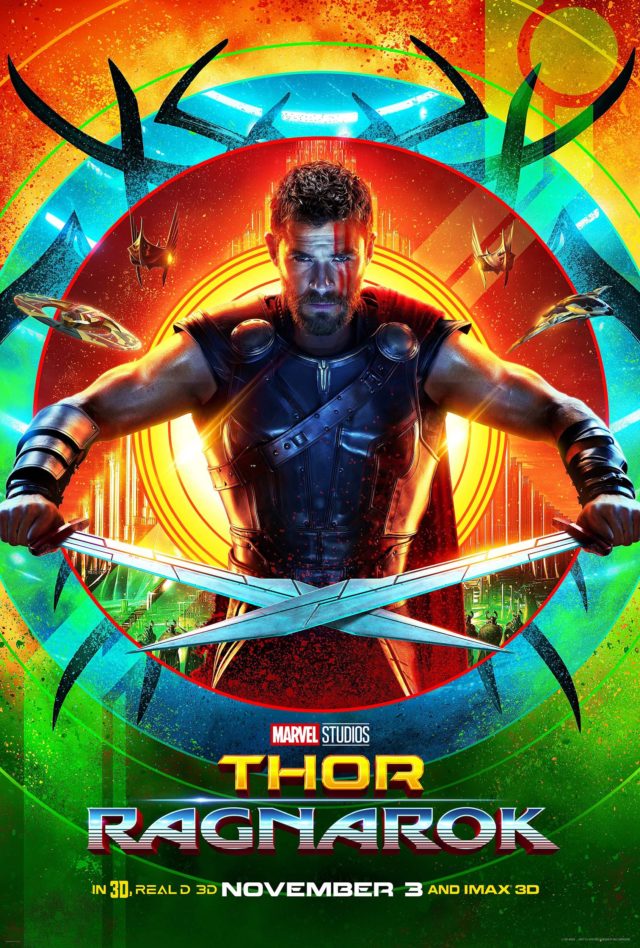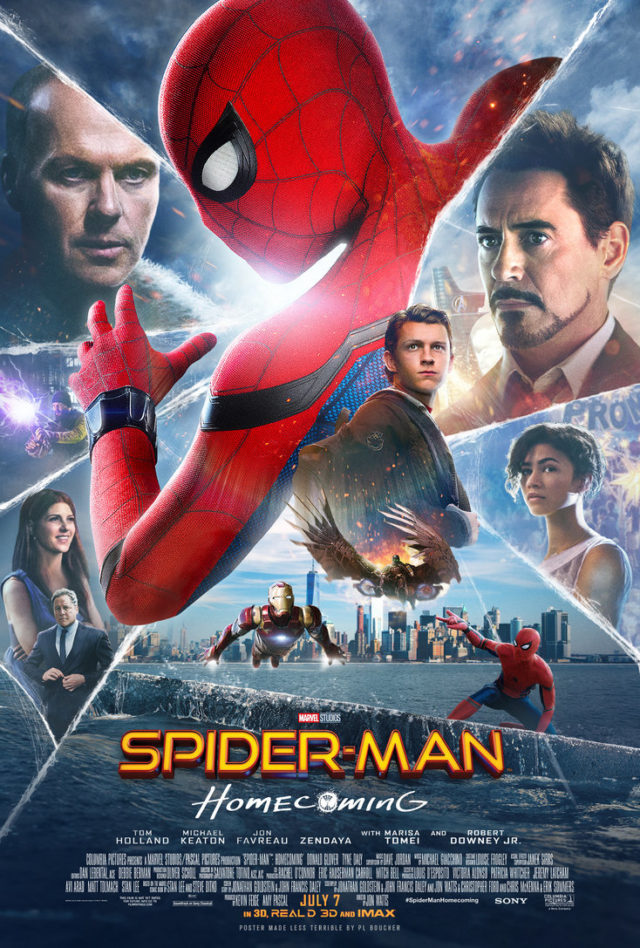By Molly Atchison | Print Managing Editor
Following the recent release of Marvel’s “Black Panther” and in anticipation of the upcoming “Avengers: Infinity War” release, it is the perfect time to revisit the Marvel Cinematic Universe (MCU). In the final week of this series, leading up to the April 27 release of the long-awaited “Infinity War,” I will be breaking down a group of movies in the MCU based off Digg.com’s “Best Way to Watch the Marvel Cinematic Universe” list. So sit back, grab your popcorn and your reading glasses and prepare to have your Marvel-loving minds blown.
“It’s the final countdown” is blasting as I’m writing the last part of this six-part series. It’s been a whirlwind of a journey, but we’ve made it, y’all. The final three movies before “Avengers: Infinity War.” “Thor: Ragnarok,” “Spiderman: Homecoming” and “Black Panther” round out phase three of the Marvel Cinematic Universe with a mix of grit, humor and high school drama.
“Black Panther” (2018):
The most recent of the Avengers films, “Black Panther,” was a standout hit and brought some much-needed change to the MCU. Viewers were introduced to Prince T’Challa of Wakanda (played by Chadwick Boseman) in “Captain America: Civil War” when his father was killed in a bomb blast at the United Nations, and T’Challa took on the alter ego of the Black Panther to avenge his father’s death. In this film, we are taken to the country of Wakanda in Central Africa directly after Civil War and dive into the world of the Jabari tribe and Wakandan culture.
Series Relevance: Being the newest film in the series, “Black Panther” rounds out the pack with a more multicultural perspective, and it brings T’Challa into the Avengers mix, defining him as a part of the crew. The movie takes the Avengers even further internationally, offering a new background for the impending “Infinity War.” Not only this, but “Black Panther” also introduces new technologies to the mix, expanding the concept of vibranium, an ultra-strong metal that originated in Wakanda and has been used in several of the super-suits and weapons of other Avengers. Wakanda, an advanced country hiding behind a facade of being a small, agrarian society, is responsible for producing some of the most high-tech weapons and items in the world, which will hopefully be included in the upcoming “Infinity War” movie. Since it’s the first in the Black Panther arc, the film is not necessarily connected to the Avengers series as much as other films are, but T’Challa and his tech-genius sister Shuri are definitely going to play large parts in the rest of the MCU films.
Entertainment Value: Although I’ve said this already, I have to say it again: “Black Panther” is one of my favorite films in the MCU. The film offers plenty of appealing characters, such as T’Challa and his sister, Shuri (played by Letitia Wright), and the antagonist Erik Killmonger (played by Michael B. Jordan). With such an all-star cast, any movie has a high threshold to meet when it comes to production value, and “Black Panther” certainly delivered. With colorful, fast-paced film and plenty of witty quips and pop-culture references, Black Panther easily stands out. What takes it to the next level is the deep backstory, filled with family feuding, exiled princes and racial tensions previously untouched by other Avengers films.
Cultural/Political Value: As mentioned above, “Black Panther” brought some racial issues to the forefront of the Avengers universe. Prompting a discussion about African culture, the connections between Africans, African Americans and the disenfranchisement of black people in America was a monster project; again, “Black Panther” delivered. Not only did it accurately represent African cultures with their tribal diversity and traditional customs, it also blended traditional with the cultural issues present in American society today. With a diverse cast and a strong political undertone throughout the script, “Black Panther” rang true in many ways, and the widespread celebration by people of color after the movie release was proof of the successful representation of interracial issues.
“Thor: Ragnarok” (2017):
Taking a turn for the weird, “Thor: Ragnarok” was an adventure into outer space as we found our Norse hunk two years after the second Avengers movie, battling his way through the outer realms of his universe in search of infinity stones. With a different director at the helm, the movie took a more comedic turn and lightened Thor’s arc from its traditionally dismal structure.
Series Relevance: “Thor: Ragnarok” may have struggled to be cohesive with the rest of the movies in his arc, but it definitely connected to the rest of the Avengers films. Not only does it offer yet another look into the infinity stones plotline, it also brings in the Incredible Hulk for a solid half of the movie; it offers a bit of resolution between the two heroes, who have a comedically antagonistic relationship. The film brought Thor’s brother, Loki, back to the forefront, giving him a slightly more sympathetic role as an anti-hero, helping Thor track down their father and prevent their truly evil sister, Hela, from conquering the nine realms. At the conclusion of the movie, Thor is heading toward earth with his people, and it alludes to both his arrival in time to help with the “Infinity War” and a possible run-in with Thanos, the Guardians early in the next movie.
Entertainment Value: Similar to films such as “Guardians of the Galaxy” and “Doctor Strange,” it’s difficult to connect with and enjoy this film as an extension of the MCU; it earns more praise when viewed as an independent film. However, I personally think the comedic changes, and the more vibrant, cartoon-like filming, made the movie much more enjoyable than the previous two Thor films. Viewers witness the dynamic between Thor and his Avenger friend the Hulk, in addition to witnessing plenty of brotherly bickering between Thor and Loki, which adds quippy one-liners to the movie’s vocabulary.
Cultural/Political Value: Though the film does not lean much on cultural or political value, the film does touch on a bit of the conversation of the immigration and refugee crises. At the end of the movie, Thor is the leader of his people and is in charge of safely leading them from their home planet to Earth.
“Spider-Man: Homecoming” (2017):
“Spider-Man: Homecoming” is the last film today, and it’s a breath of fresh air. Bringing the youngest Avenger to the table, “Spider-Man: Homecoming” is one of the most purely comedic films in the MCU. Peter Parker (played by the adorable Tom Holland) is reincarnated as an actually believable high-school student who develops superpowers seemingly overnight as the result of a freak encounter with a creepy-crawly creature.
Series Relevance: Spider-Man has been recreated several times with several different actors, but bringing him into the Avengers fold is an undertaking. Connecting the intelligent and charming Parker with Tony Stark was an excellent move by the movie creators, and making Parker more relatable as a high school student and a teenage superhero was well done. The film ties in well with the latest Avengers film, and it begins almost directly after the film ends. However, this, like the “Black Panther” movie, was more about developing Spider-Man as a character than connecting him to the Avengers in any particular way, although there is no question that he will be another major player in the upcoming “Infinity War” movie.
Entertainment Value: One of the funniest films in the series, “Spider-Man: Homecoming” transported the audience back to the halls of high school, complete with quirky, awkward moments and overblown relationship drama. It also successfully established the love-interest of the film, Mary Jane, from helpless damsel to sassy and confident school rebel. The directors also wisely shied away from pursuing that love story, which will hopefully be pushed off until later films. From Parker being introduced to his homecoming date’s father, to balancing schoolwork and his secret life as a crimefighter, “Spider-Man: Homecoming” continued the comic-book style filming of recent Avengers movies and filled hearts with innocent joy as viewers cheered Parker on.
Cultural/Political Value: There wasn’t too much cultural or political value in this film, but it definitely had a diverse cast and focused on a theme of encouraging more inclusive and well-rounded education.
With that, we round out phase three of the MCU. For the next week, we will bite our nails and debate the fates of our favorite heroes, and next Friday, the wait is over. I’ll be at the “Avengers: Infinity War” midnight premiere — Will you?









